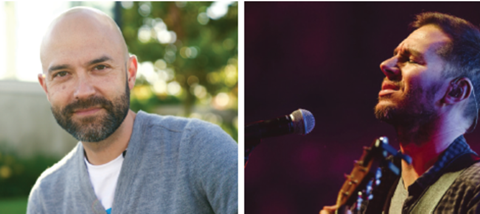
I was saved when I was twelve. I was an easy convert because I responded the first time I heard the gospel. But aged 19 I committed apostasy. In other words, I walked away from my faith and lived as an atheist until I was 27.
What caused such a volte-face? After many debates with a sceptical friend at university, I concluded that Christianity was irrational. My decision was confirmed by the reaction of other Christians to my questioning. The most common response was incredulous anger. This stiffened my rebellion and I walked away.
Therefore, Marty Sampson, the Hillsong worship leader who posted on Instagram recently that he is losing his faith, is of great interest to me. So, too, is Joshua Harris who similarly took to Instagram to renounce his faith.
I believe it is time to pause and think about how we Christians ought to respond to doubters, whether well-known or not.
In the Instagram message that first announced his failing faith, Sampson listed questions for which he had no answers such as: “Why is the Bible full of contradictions?” He also declared he wanted the “genuine truth. Not the ‘I just believe it’ kind of truth.” He finished by commending love, forgiveness, generosity and goodness.
When I read the statement I was optimistic. Here was a man who still believed in absolute truth and objective moral values. We had not lost him down the black holes of epistemic and moral relativism. There were still points of contact between Christianity and Sampson.
I suspected that Sampson was in two minds and that he had not yet made the decision to walk away from Christ. This was confirmed when Sampson deleted his Instagram message and posted instead the following apologists’ names: William Lane Craig, John Lennox, Ravi Zacharias, Michael Licona and Frank Turek.
Sampson stated that he watches them regularly and encourages others to find out more about them. I was pleased because if there is anyone who can answer Sampson’s questions, it is them.
In his latest post (published and then swiftly deleted), Sampson confirmed that he has not rejected his faith but admitted it is shaky. While I was relieved to hear that all was not lost, I was disappointed by the reaction of fellow Christians.
David Robertson, a pastor turned evangelist wrote an open letter on this blog decrying Sampson’s announcement, and John Cooper, Skillet’s frontman, posted a thinly veiled criticism on Facebook which, though it didn’t address Sampson directly, has been taken personally by Sampson.
As a high-profile Christian, Sampson probably feels acutely awkward; he does not need Robertson reminding him that his confession will harm Hillsong and cause atheists to rejoice. Nor does he need his faith to be described as a “sheltered cocoon” for assuming that his questions of doubt have never been asked before.
Robertson describes Sampson’s statements as “stunning”. What does that mean? Ludicrous? Outrageous? How insulting. And why does Robertson begin with anaphoric monotony five consecutive paragraphs of his letter with the clause “You say” which creates an accusatory tone?
Cooper’s statement on Facebook is equally chastising. It criticises worship leaders who publicly renounce their faith and lead others away from the truth.
In an Instagram post responding to Cooper, Sampson denies that he is trying to influence others. He says that his motive for going public was to explain why he was not going back to Hillsong, an honest explanation he believes his 4,000 followers on Instagram deserve. He is rightly angry that Cooper has imputed to him a motive that he does not have.
The situation has certainly become very messy so what should be done?
A public response to Sampson is needed – preferably by Hillsong –and this does not seem to have happened. In that response there ought to be at least the affirmation that Sampson is always welcome at Hillsong, whatever his views are.
Those affected by Sampson’s wobbly faith may require some pastoral input and time to discuss their own doubts with those who can lead them to answers.
Sampson, of course, needs attention and the apostle Paul is helpful on this: “Brothers and sisters, if someone is caught in a sin, you who live by the Spirit should restore that person gently. But watch yourselves, or you also may be tempted” (Galatians 6:1).
I suggest that the spirit of gentleness consists first of assuring Sampson that he is loved, second, of careful listening to his questions and then a discussion of his response to the apologists to whom he listens.
It would be a good idea to offer him other resources he might wish to consider that speak to his concerns. Something by Amy Orr-Ewing or Alister McGrath. He sounds like a man who needs to think things through for himself.
As I write this, I cannot help thinking of myself as that 19-year-old drowning in doubt. And not only myself, but those I have known or have heard of who have abandoned the faith. A healthy, faithful dose of gentleness might have kept us on the narrow path. Let us pray that it keeps Marty Sampson on the straight and narrow too.
Dr Peter Harris is the author of The Rage Against the Light: Why Christopher Hitchens was Wrong. He can be followed @ReasonableDr



























